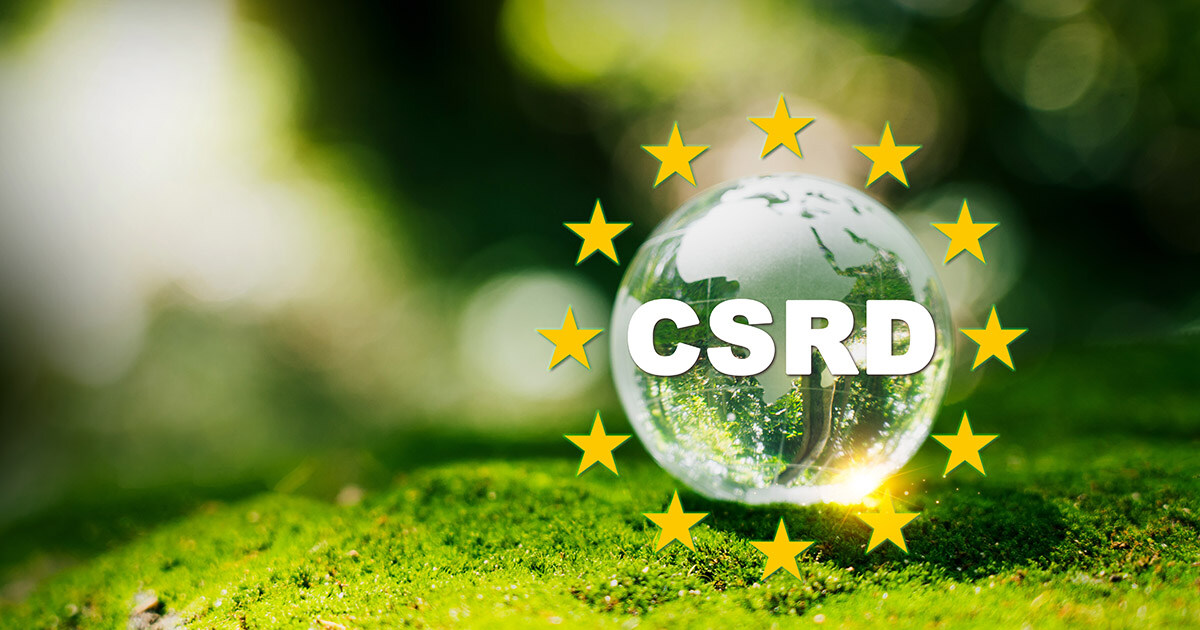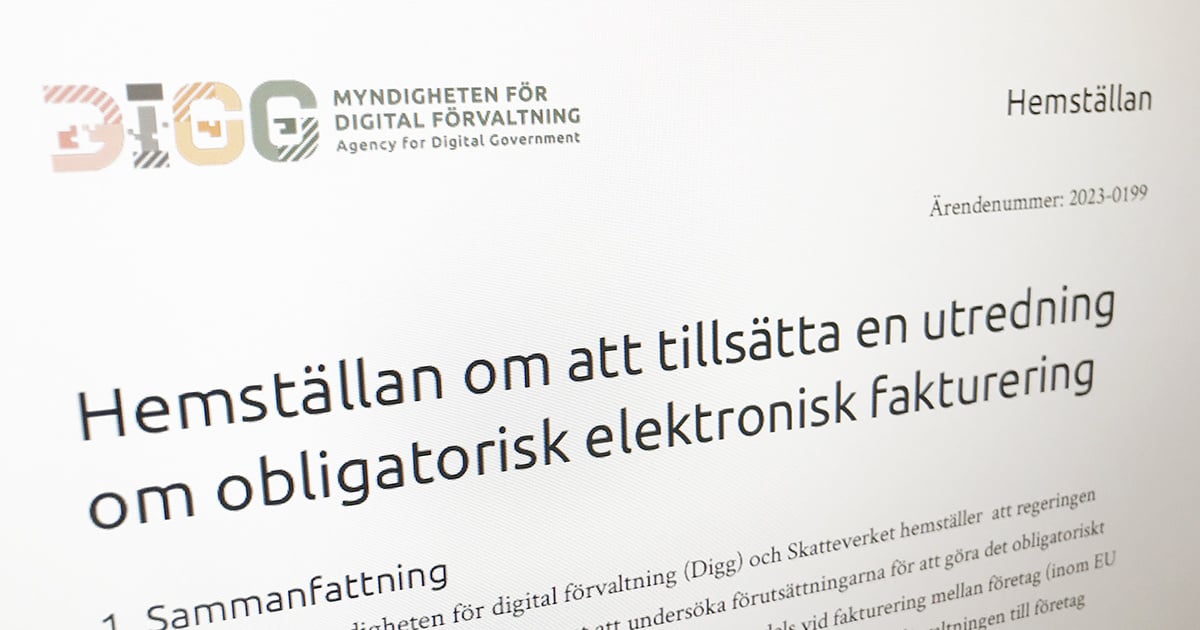Sustainability and electronic data go hand in hand

The new EU directive for sustainability reporting, CSRD, has now come into force.
The requirement affects companies that have more than 500 employees or are of public interest, but there are benefits in taking the same initiative as a small or medium-sized company.
With invoices and other business documents in electronic form, it is easy to pinpoint the key figures for a sustainability report. This in turn can speed up the green transition and create new business opportunities.
Sustainable investment and sustainable growth. This is the objective behind the enhanced reporting of performance in three areas of sustainability - environmental, social and economic - that the EU has imposed on all large and listed companies in the Union. When these companies summarize their accounts for 2024, a sustainability report must be included in the management report and it must also undergo a third-party review.
This intensification, initiated by the EU, is concentrated in an amending directive, the Corporate Sustainability Reporting Directive (CSRD), which replaces the previous directive, the Non Financial Reporting Directive (NFRD). The difference is that in the future, reporting will be more comprehensive and cover various key areas such as business strategy, sustainability goals, board duties and value chains.
Creates positive effects
The bottom line is that the CSRD directive will mean more work, and it certainly will, but if you take a long-term view, a number of positive aspects emerge. The requirements for greater responsibility and increased transparency regarding sustainability issues mean that these elements need to be prioritized and managed even more carefully. Which can actually be very beneficial in the end. Thanks to reporting, not least with the associated comparative figures, a basis is gradually being built up that makes investments in sustainability and the effects they have had visible in a better and more transparent way.
Almost three years ago, the EU adopted a climate law that states that member states should be climate neutral by 2050. As this vision of a carbon-neutral, non-toxic and circular society is in the minds of many, companies that have a negative impact on the environment and nature will hardly be the most attractive.
Sustainable companies with sustainable economies are the ones people want to cooperate with, do business with and be associated with.
"Sustainability creates stronger business relationships, increased recruitment opportunities and faster growth."
Based on this reasoning, it seems obvious that a mapping of sustainability work is also important for companies that are not currently covered by the CSRD Directive. The approach may vary, but it is clear that data collection is crucial. This in turn highlights the need for electronic data. Anyone with figures such as fuel costs, material purchases and kilowatt hours consumed locked away in PDF or paper format has a massive amount of manual work ahead of them. With an electronic invoice flow, that burden disappears. This environmental data is then easily accessible in the business system in the form of structured data ready for further processing.
The same goes for various figures relating to social and economic sustainability. Investments in health and wellness or in IT security, and what these investments cost in time and money, immediately become much easier to include in a larger overall picture when everything is available in electronic form. IT security is a prime example, by the way. As we know, PDF and paper invoices are sometimes subject to fraud attempts. Risks that do not exist at all with e-invoices.
Profitable investment
If we stick to economic sustainability, a key aim of the amending directive that has just entered into force is to combat crime. In a more in-depth description, it is stated that reporting serves, among other things, as a tool in the fight against money laundering and corruption.
Stronger business relationships:
The effects of the reporting obligation will run down the line. Larger companies will impose increasingly stringent environmental requirements on their suppliers. Sustainability work will have to be carried out along the entire value chain. Perhaps a small or medium-sized company will not even be able to tender without a sustainability report.
Increased recruitment opportunities:
Environmental awareness is growing all the time. It is very clear, especially among younger people, that environmental degradation and global warming are parameters when faced with choices. To attract future employees, born in the 21st century and part of the so-called Generation Z, a solid environmental profile will be an obvious competitive tool.
Faster growth:
It is an old truth that like-minded people pull in the same direction. A mutual prioritization of sustainability promotes growth. It can also open up new business opportunities. If reporting is established as a routine within the company, potential business partners and investors will have the opportunity to access sustainability information directly from the source instead of buying indexed data. Putting a strong emphasis on sustainability is a long-term endeavor, but so is profitability as you know.


